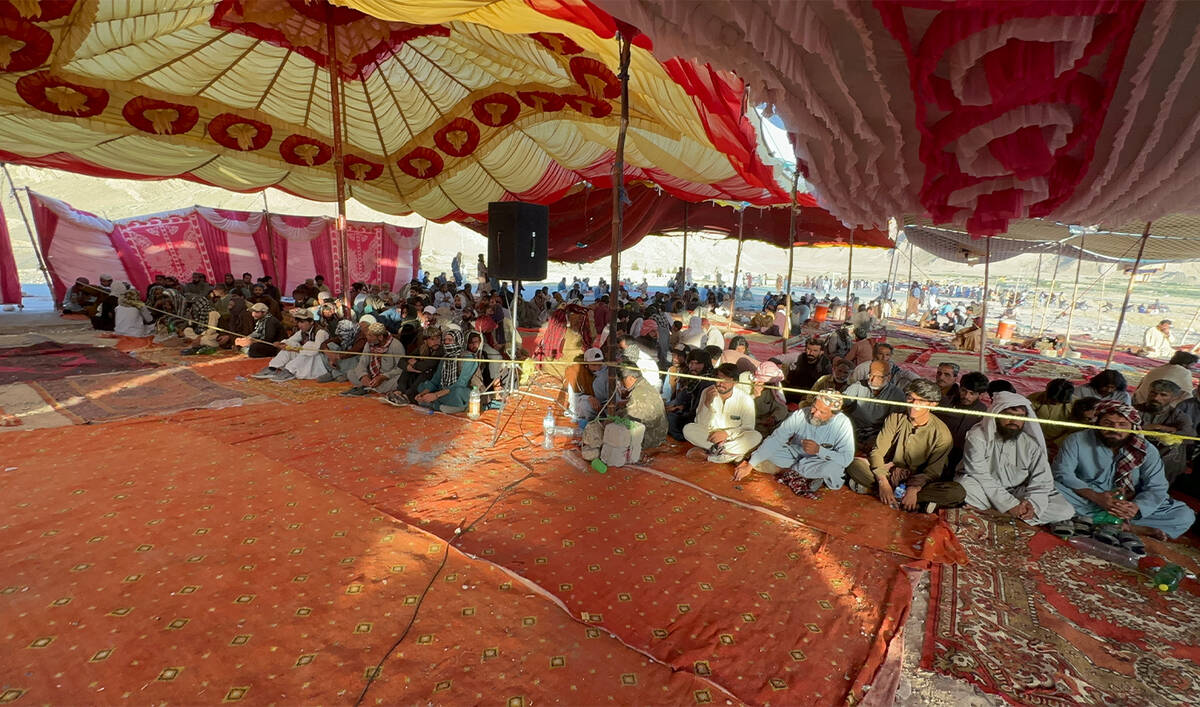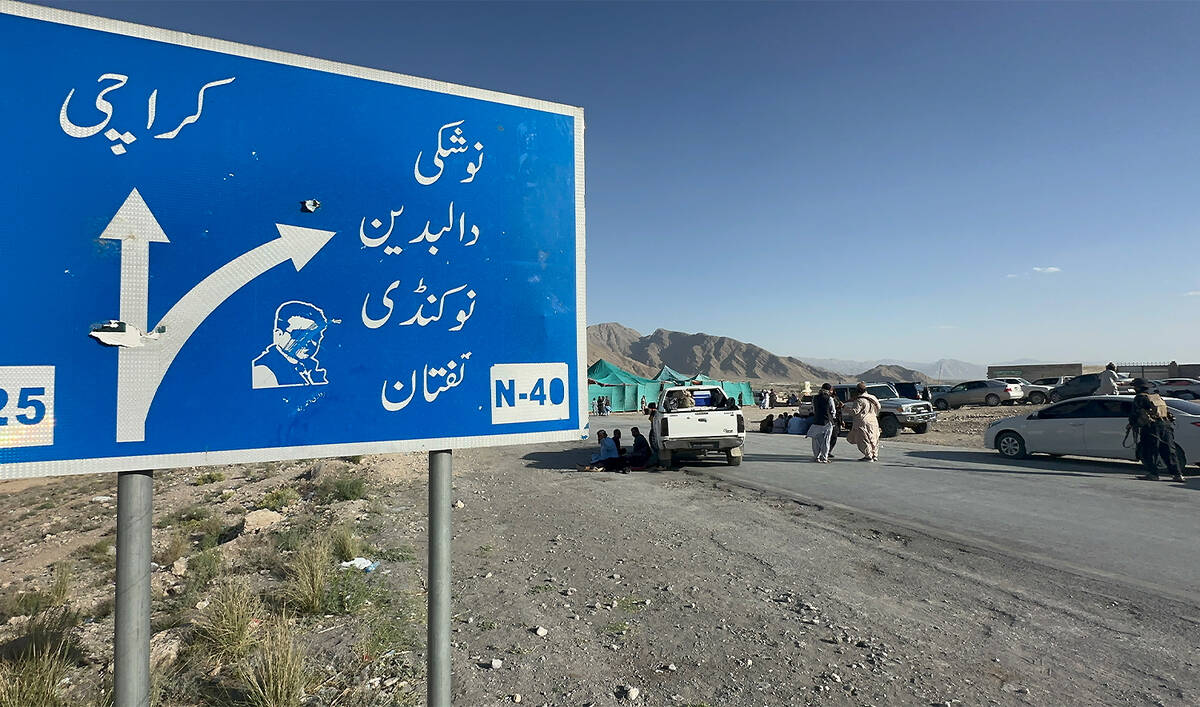QUETTA: The Balochistan National Party-Mengal (BNP-M) has called for a shutter-down strike and road blockades across Pakistan’s southwestern Balochistan province today, Monday, over a police crackdown on its supporters, who attempted to march toward the provincial capital of Quetta a day ago to demand the release of Baloch rights activists arrested last month.
The BNP-M, led by lawmaker Sardar Akhtar Mengal, on Friday announced its supporters would march from Lak Pass in the Mastung district toward Quetta after their talks with provincial government officials for the release of detained rights activists failed to yield any results.
The BNP-M is demanding the release of Baloch Yakjehti Committee (BYC) leader Dr. Mahrang Baloch and several of her colleagues who were arrested on Mar. 22 after staging a sit-in outside the University of Balochistan. Pakistani authorities charged them with “terrorism,” sedition and murder following a protest in which three demonstrators were killed, according to police documents.
The Baloch nationalist party said police used tear gas to keep the protesters from marching toward the provincial capital, where authorities have imposed a ban on public gatherings.
“Our today’s morning plan was to go towards Quetta, but all the roads were closed with huge deployment of security forces,” BNP chief Mengal told Arab News on Sunday.
“We have decided to continue our sit-in in Mastung and we have called a province-wide shut down and road blockades tomorrow [Monday] morning.”
Asked about his negotiations with the government, Mengal called the provincial cabinet members “powerless.”
“I think the government negotiation’s committee didn’t have the authority to fulfill our demands,” he told Arab News. “This protest will continue until Dr. Mahrang Baloch and other detained members of Baloch Yakjehti Committee (BYC) are not released,” Mengal told Arab News.

Supporters of Balochistan National Party-Mengal participate in a sit-in protest near Lak Pass in Pakistan's Mastung district on April 6, 2025. (AN photo)
The BNP-M supporters blocked several highways leading to Quetta on Sunday as police fired tear-gas to disperse them.
Muhammad Baloch, a senior superintendent of police (SSP) in Quetta, said they had arrested 50 protesters.
“Police have booked the protesters who pelted stones on police personnel and citizens and blocked several roads in Quetta,” he said.

Supporters of Balochistan National Party-Mengal party block a key highway in Quetta, Pakistan, on April 6, 2025. (AN photo)
Balochistan, Pakistan’s largest province by landmass and rich in mineral resources, has been the site of an insurgency for the last two decades. The separatists accuse Islamabad of exploiting the province’s natural resources, such as gold and copper. Successive Pakistani governments have denied the allegations.
The Pakistan army and the government have in the past variously referred to Baloch and her BYC as “terrorist proxies” who they say are allied with militant separatist groups like the Balochistan Liberation Army (BLA). Baloch and her group deny the charge and say they lead peaceful protests for the rights of the ethnic Baloch people.
Police actions against Baloch rights activists have intensified after Baloch separatist militants last month staged a dramatic train siege that officials said ended in around 60 deaths, half of whom were separatists behind the assault.
Shahid Rind, a spokesperson of the Balochistan provincial government, said Mengal had been informed that he would be detained under the Maintenance of Public Order law if he moved to Quetta.
“The administration and police clearly told him that if he moves toward Quetta, he will be arrested and that’s why the law enforcement agencies are there,” Rind said.
The BNP-M sit-in at Lak Pass has resulted in the closure of the key Quetta-Karachi highway by authorities for the last nine days, disconnecting Quetta from Pakistan’s commercial capital of Karachi and the Taftan border with Iran.
“We arrived here on the 28th of March and parked our vehicles near Lak Pass due to road blockades and have been sitting here for the last 10 days because the authorities have blocked Quetta-Karachi highway,” Muhammad Hashim, a driver who was going to Quetta from Karachi, told Arab News.
“This situation is not benefiting anyone whether the protesters, government or ordinary citizens. The government should resolve this issue immediately and open the road.”














